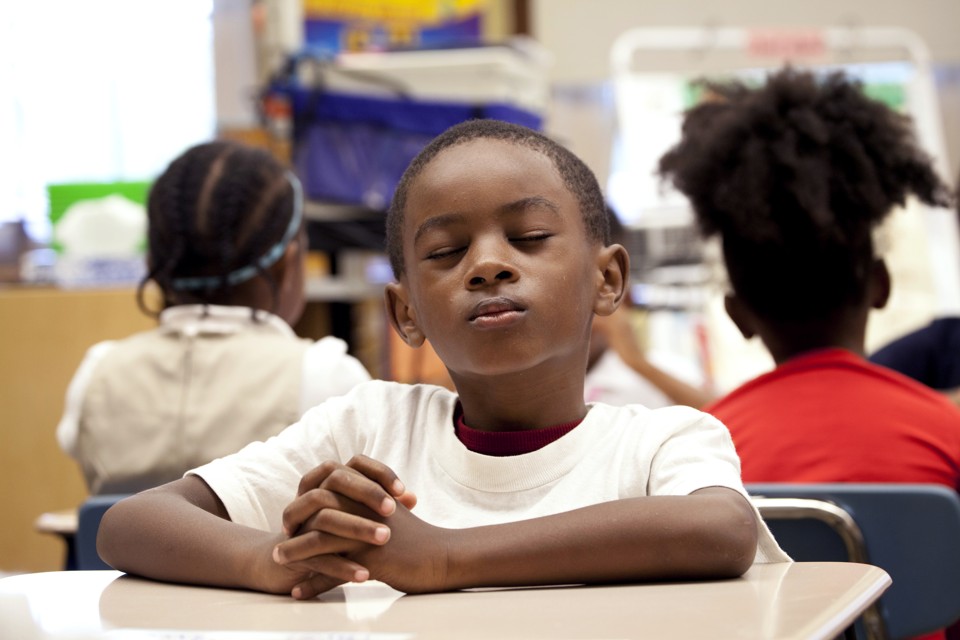Does Mindfulness Actually Work in Schools?
Scholars want to know whether the practice helps young kids of color succeed academically.

Courtesy of Kathy Richland Photography
A research team in Chicago has spent a year studying whether students who are taught to be in touch with their emotions do better academically. And they say the initial results are promising.
Perhaps counterintuitively, when kids take a break from a classroom lesson on the solar system to spend a quiet moment alone watching a three-minute nature video, or participate in a teacher-guided breathing exercise with their class after lunch, they seem to become better overall students. That’s likely because the children have a renewed sense of focus, they handle transitions from one lesson to the next better, and they need less time to regroup if they become upset about something, said Amanda Moreno, an assistant professor at the Erikson Institute, a child-development-focused graduate school in Chicago.
Moreno and her team received $3 million, most of it from the U.S. Education Department, to study what is known as “mindfulness” in more than 30 high-poverty Chicago public schools over the course of four years. They are watching approximately 2,000 kindergarten through second-grade students. My colleague took an in-depth look at mindfulness here, but the basic idea is to allow kids, as Moreno told me, to “slow down and not be on automatic-pilot and not be overwhelmed by all the things they could be focusing on.” The idea has been popular in some public and private schools for years, but there’s been little in the way of evidence to back it up as an effective academic intervention, and where studies exist, they’ve tended to focus on older students. Erikson says its ongoing research is the largest mindfulness study of children funded by the federal government ever conducted and the only in the country to focus specifically on whether mindfulness exercises improve academic achievement for young kids of color from low-income families.
That focus is important because, if mindfulness proves effective, low-income children of color may stand to benefit disproportionately. Children growing up in poverty are more likely than their affluent peers to be exposed to violence and to experience long-term stress that can derail their academic progress. Some research has suggested that children living in high-stress environments (drug-addicted parents, abusive caretakers, neighborhood gun violence) are constantly on edge, ready to fight or take flight, which can lead to outbursts in class that turn into suspensions and even expulsions, all detrimental for learning. And recent brain science suggests that exposure to stress can shorten periods of brain development, meaning it’s especially crucial to limit stress in the early years when brain growth is rapid.
When disadvantaged kids aren’t focused in class, achievement gaps can widen, and, Moreno suggests, purely academic attempts to close those gaps miss the significant impact that the state of a child’s emotional and social well-being can have on his ability to learn math. For kids who have suffered from prolonged stress or trauma, mindfulness seems to offer a way of “short-circuiting” the fight-or-flight response, Moreno said. It helps kids with the greatest self-regulation challenges adapt to slower, more methodical classroom settings. Moreno said she’s heard from teachers with students who have gone from five or six tantrums a day to none because they know they can go to their classroom’s “calm spot” whenever they feel like they’re spiraling out of control.
Moreno pushes back at the idea, levied by critics of mindfulness in the classroom, that it is a craze designed to turn kids into compliant robots or a form of victim-blaming. “[Proponents] see mindfulness as a way to amp up an education system that will create compliant students who can manage their own behavior, focus on Chicago Study Tests Mindfulness in Elementary Schools - The Atlantic:
